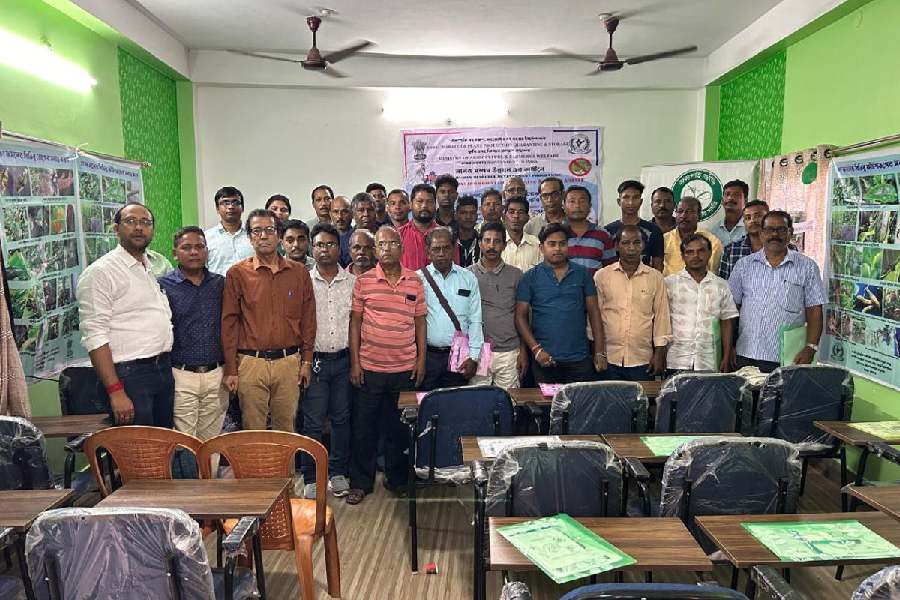A two-day workshop started for small tea cultivators on Monday in Jalpaiguri to discourage them from the indiscriminate use of pesticides on their plantations.
The workshop or the orientation training on integrated pest management is being organised by the Regional Central Integrated Pest Management Centre (RPIMC), Calcutta, which functions under the Union ministry of agriculture and farmers' welfare, in association with the Jalpaiguri District Small Tea Growers' Association.
Bijoygopal Chakraborty, the president of the association, said the Tea Board and the FSSAI (Food Safety & Standards Authority of India) banned the use of some chemicals, including pesticides and insecticides, in the tea industry to ensure that the tea produced is safe and did not cause any health hazards.
“Also, a mechanism has been evolved to check tea samples to prevent the production of teas that contain such chemicals. The workshop was organized to apprise the small tea growers about the consequences of using the banned chemicals and to train them on how they can do pest management by using other materials which are not banned and don't pose any health hazard for tea drinkers,” said Chakraborty.
Altogether, there are around 50,000 small tea growers in north Bengal who contribute around half of the total tea produced in the state.
Earlier this year, the growers were confronting a crisis as the bought-leaf factories (BLFs) – the standalone tea processing units that buy tea leaves from growers and process those – had stopped buying tea leaves from the growers.
This is because if tea samples are checked in their units and it is found that those contain banned chemicals, the BLFs would be held responsible and will face stringent action.
The impasse was resolved by chief minister Mamata Banerjee, who assured that steps would be taken to confirm that banned chemicals are not used at the tea plantations.











